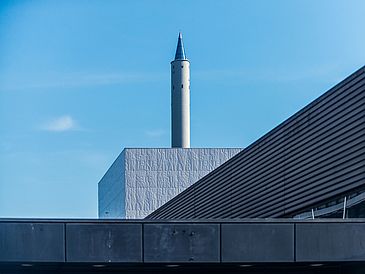Between 2012 and 2016, the North German states annually awarded the North German Science Prize for outstanding research collaborations. Since 2018, the prize has been awarded every two years. This year, the focus was placed on natural sciences. The decision was made to honor the cooperation “Geodäsie und Klimaforschung – Wechselwirkung zwischen Kohlenstoff- und Wasserkreislauf“ (Geodesy and Climate Research – Interplay between Carbon and Water Cycles) between the University of Bremen, the University Hannover, and the DLR Institute for Satellite Geodesy and Inertial Sensing (Hannover and Bremen).
In the award-winning project, climate forecasts are to be improved by means of satellite data and model investigations of CH4 emissions and CO2 recordings.
Bremen’s Senator for Science and Ports, Dr. Claudia Schilling, states: “I am very pleased that a project being led by the University of Bremen has won the North German Science Prize. I would like to congratulate Prof. Dr. Claus Lämmerzahl and his team in Bremen, as well as his cooperation partners at the University Hannover and DLR Institute for Satellite Geodesy and Inertial Sensing. The topic ‘Geodesy and Climate Research – Interplay between Carbon and Water Cycles’ is of great relevance for society. The award once more shows how important cooperation is for scientific advancement.”
“DASHH – Data Science in Hamburg, Helmholtz Graduate School for the Structure of Matter” at the University of Hamburg and in cooperation with universities and institutes in Hamburg, Lower Saxony, and Schleswig Holstein, such as DESY and the Helmholtz centers in Geesthacht and Braunschweig, was also honored.
In this competition year, Schleswig Holstein is the chair of the North German Science Conference and thus also organized the Science Prize. Both cooperations were nominated by a scientific selection committee. Each Science Prize is endowed with 125,000 euros. If the pandemic allows for it, the awarding ceremony is to take place next year with only a few guests.
The Winning Project at the University of Bremen:
Geodesy and Climate Research - Interplay between Carbon and Water Cycles
The current climate change is becoming apparent through the global warming of the lower atmosphere. The majority of said global warming stems from the increase in the greenhouse gasses CO2 and CH4 in the atmosphere, which is caused by humans. One of the effects of warming is on circulation patterns, the water cycles, and the natural exchange of CO2 and CH4 with the biosphere. It is important to understand the possible changes in exchange processes in order to enable forecasts and implement measures to restrict global warming. In this project, it is intended to investigate how a) the CH4 emissions in humid areas and b) the CO2 absorption via plants depend on water levels. This is to be done with the help of satellite data (GRACE/GRACE Follow-On, Sentinel5p, GOSAT, OCO2) and models. Both the CH4 emissions in humid areas and the CO2 absorption via plants greatly affect atmospheric concentration, so that even small changes can have great consequences for said concentration. It is for this reason that the suggested investigations have the potential to be significant contributions that should be considered in climate forecasts.
Contact:
Professor Dr. rer. nat. Claus Lämmerzahl
ZARM – Center of Applied Space Technology and Microgravity
University of Bremen
Phone: +49 421 218-57834
Email: claus.laemmerzahlprotect me ?!zarm.uni-bremenprotect me ?!.de

